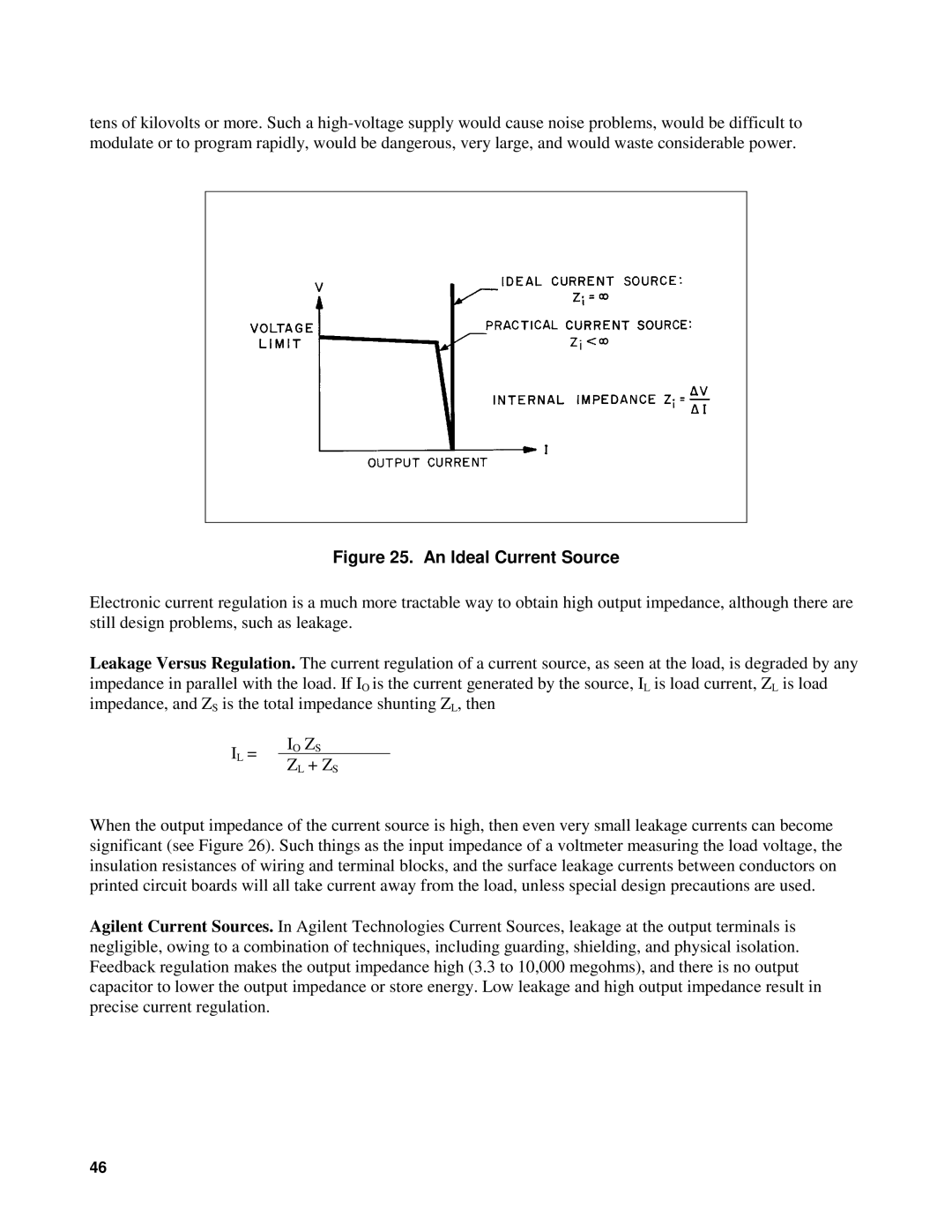
tens of kilovolts or more. Such a
Figure 25. An Ideal Current Source
Electronic current regulation is a much more tractable way to obtain high output impedance, although there are still design problems, such as leakage.
Leakage Versus Regulation. The current regulation of a current source, as seen at the load, is degraded by any impedance in parallel with the load. If IO is the current generated by the source, IL is load current, ZL is load impedance, and ZS is the total impedance shunting ZL, then
IL = | IO ZS | |
ZL + ZS | ||
|
When the output impedance of the current source is high, then even very small leakage currents can become significant (see Figure 26). Such things as the input impedance of a voltmeter measuring the load voltage, the insulation resistances of wiring and terminal blocks, and the surface leakage currents between conductors on printed circuit boards will all take current away from the load, unless special design precautions are used.
Agilent Current Sources. In Agilent Technologies Current Sources, leakage at the output terminals is negligible, owing to a combination of techniques, including guarding, shielding, and physical isolation. Feedback regulation makes the output impedance high (3.3 to 10,000 megohms), and there is no output capacitor to lower the output impedance or store energy. Low leakage and high output impedance result in precise current regulation.
46
